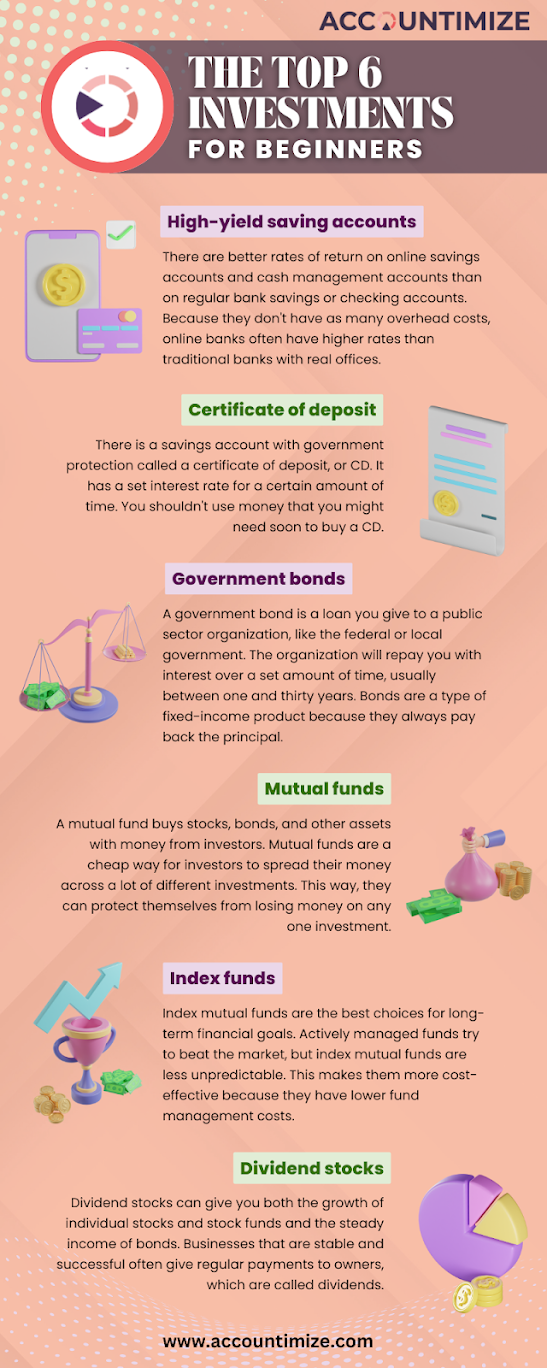Get the Wealth Secrets! Learn How to Start Investing RIGHT NOW! Join tens of thousands of other smart investors today! Smart Investing!
High-yield saving accounts
There are better rates of return on online savings accounts and cash management accounts than on regular bank savings or checking accounts. Because they don't have as many overhead costs, online banks often have higher rates than traditional banks with real offices.
Certificate of deposit
There is a savings account with government protection called a certificate of deposit, or CD. It has a set interest rate for a certain amount of time. You shouldn't use money that you might need soon to buy a CD.
Government bonds
A government bond is a loan you give to a public sector organization, like the federal or local government. The organization will repay you with interest over a set amount of time, usually between one and thirty years. Bonds are a type of fixed-income product because they always pay back the principal.
Mutual funds
A mutual fund buys stocks, bonds, and other assets with money from investors. Mutual funds are a cheap way for investors to spread their money across a lot of different investments. This way, they can protect themselves from losing money on any one investment.
Index funds
Index mutual funds are the best choices for long-term financial goals. Actively managed funds try to beat the market, but index mutual funds are less unpredictable. This makes them more cost-effective because they have lower fund management costs.
Dividend stocks
Dividend stocks can give you both the growth of individual stocks and stock funds and the steady income of bonds. Businesses that are stable and successful often give regular payments to owners, which are called dividends.





